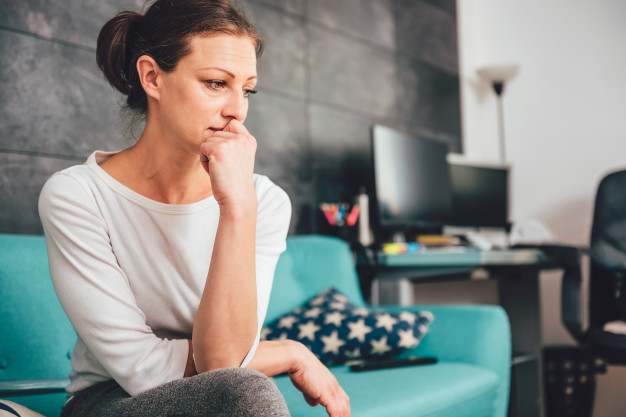What you should know about anxiety
Anxiety is the brain's natural response to stress. It's a feeling of fear or apprehension about what is going to come. The first day of school, giving a stage performance, going for a job interview or giving a speech could be some activities that make a lot of people feel fearful and anxious.
Although, being anxious can be useful sometimes, it can alert us to the dangers and help us to prepare and pay attention to the same. However, we must understand that fear and anxiety are different. When fears are exaggerated it turns into anxiousness.
When a person regularly feels a superfluous extent of anxiety, it might turn into ‘anxiety disorder’. These feelings of anxiety and panic may interfere in daily activities; this is difficult to control and may cause regular anxiety episodes that can last for very long.
A person with anxiety may want to avoid places or situations that cause a rush of complex thoughts to prevent anxiousness. The symptoms may start during early childhood or the teenage years and continue to stay in effect till adulthood. Examples of anxiety disorder include social phobia, OCD, panic disorders and PTSD.

- A feeling of being on the edge: A person with anxiety disorder remains restless; the mind of a person struggles to get stabilized and the person always has thoughts running in his mind.
- Excessive worrying: The person suffers from anxiety attacks very frequently; the condition starts to get worse if it goes untreated.
- Increased feeling of irritability: With the rest of the symptoms, the person always feels irritated as the mind refuses to stay balanced with the emotions.
- Concentration difficulties: One loses the focus and concentration over the everyday activities; it widely affects the work life of a person. Moreover, a person starts to lose interest in everything and fails to develop one.
- Sleep difficulties: The sleep cycle gets disrupted due to anxiety issues, either a person will sleep too much to escape his mental struggles or starts to sleep very less and become insomniac.
- Generalized anxiety disorder (GAD): Generalized anxiety disorder is distinguished by persistent anxiety attacks and excessive worrying even over the little provocations.
- Social anxiety: Social anxiety is varied by the fear of going out in public and interacting with people. A person gets very nervous while interacting. He might experience increased heart rate, sweating and rapid breathing while social interactions.
- Panic disorder: Panic disorder is the unexpected episode of fear which leads to physical symptoms like, chest pain, dizziness, short breath or increased heart rate.
- Obsessive-compulsive disorder (OCD): Anxiety can be a symptom when one experiences obsessive compulsive thoughts and behaviours. OCD is characterized by unwanted repetitive behaviours, such as, washing hands too much, counting, cleaning, keeping things in specific orders etc. These actions provide temporary satisfaction to the person and causes anxiety when the person can’t perform those activities.
- Post-traumatic stress disorder (PTSD): Anxiety can be a symptom when one experiences trauma because anticipations and flashbacks can cause the person to be anxious. PTSD develops in a person after experiencing a terrifying event. Traumatic events may include physical harm, grievance, military combat, accidents etc.

- Identifying the problems: Therapy helps to find the root cause of the issues. If a person can identify the source and triggers of the problems, it becomes easier to work over it.
- Healthy lifestyle: Healthy habits are the natural remedy for mental issues like anxiety. Therapy helps to change the imbalanced thought and behavioural patterns with the support of a healthy lifestyle. A person must fix his sleeping cycle, eating schedule and he must exercise daily to prevent the anxiousness.
- Coping mechanism: It is important to develop skills to cope up with the stress and anxiety that frequently makes a person suffer from it. Therapy helps to develop those skills for a person to overcome his issues.
- Controlled emotions: Therapy assists a person to have a rule over his moods and thoughts. Thoughts and emotions are a big cause of changing behaviours of a person.
- Stress management: Learning to manage stress helps limit potential triggers. One must organize any upcoming pressures and deadlines, compile lists to make daunting tasks more manageable and commit to taking time off from study or work.
- Relaxation techniques: Simple activities can help soothe the mental and physical signs of anxiety. These techniques include meditation, deep breathing exercises, long baths, better sleep cycle and yoga.
- Replacing negative thoughts with positive ones: One should make a list of the negative thoughts that might be cycling as a result of anxiety and write down another list next to it containing positive and believable thoughts to replace them. Creating a mental image of success helps conquering specific fears.
- Support network: Talking to family members and close friends can help a lot to overcome anxiety issues. Support group services may also be very helpful.
- Exercise: Physical exertion can improve self-image and make a person feel positive and encouraged.